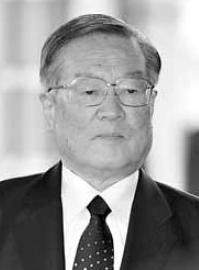Japan seeks military comeback: Expert
 0 Comment(s)
0 Comment(s) Print
Print E-mail China Daily, August 1, 2012
E-mail China Daily, August 1, 2012
The Defense of Japan 2012, Tokyo's annual defense white paper, proves that Japan is using its ambition for military independence to stage a military comeback, an expert said.
Critics are saying the country's defense white paper, released on Tuesday, isn't coherent because four defense ministers took office and stepped down in the last year.
|
|
|
Japan's current defense minister Satoshi Morimoto |
Satoshi Morimoto, Japan's current defense minister, responded to media questions about the criticism by saying the nation will follow the security strategy adopted in the National Defense Program Outline in 2010 and continue building its military alliance with the US to counterbalance China.
Ever since Japan approved the 2010 Outline, the country has started to do away with the "Basic Defense Force" approach and placed a new security strategy based on a "multifunctional, flexible, and effective defense force", with a highly capable "dynamic deterrence" capacity.
"Japan's diplomatic and security strategy could never have been clearer. It has appeared to follow Washington's strategy to balance China's military development. But Japan aims to realize its own military independence," said Li Wei, director of the Institute of Japanese Studies in the Chinese Academy of Social Sciences.
Li said such change allowed Japan to step up efforts to intervene in the South China Sea and collude with the Philippines and Vietnam to make waves after Washington's strategic shift.
"It is obvious that Yoshihiko Noda, the prime minister, has acted faster than his two predecessors to strengthen Japan's military," Li said.
She added that as a result, Japan's current political atmosphere allows politicians and academies to talk freely about "military independence" and call for the current interpretation of Japan's constitution to be reviewed so the nation can exercise its right to a collective self-defense.
And it is noteworthy that Morimoto has made similar calls when he was a professor at Takushoku University.
The hawkish and pro-American defense minister has always emphasized the importance of the armed forces and similar military principles of unilateralism, according to Li.
Morimoto will visit Washington on Friday to meet his US counterpart, Defense Secretary Leon Panetta, on the planned deployment of the US' MV-22 Osprey vertical takeoff-and-landing aircraft in Japan's Okinawa prefecture, according to Japan's Daily Yomiuri Online.
"The Japan-US alliance is not the same as before. It has already turned into a convenient tool for Japan to become a 'normal country'," Li said.
Morimoto may take advantage of local protest against the deployment of the Osprey to bargain with the White House for more permission for Japan's back-to-normal strategy, Li said.







Go to Forum >>0 Comment(s)